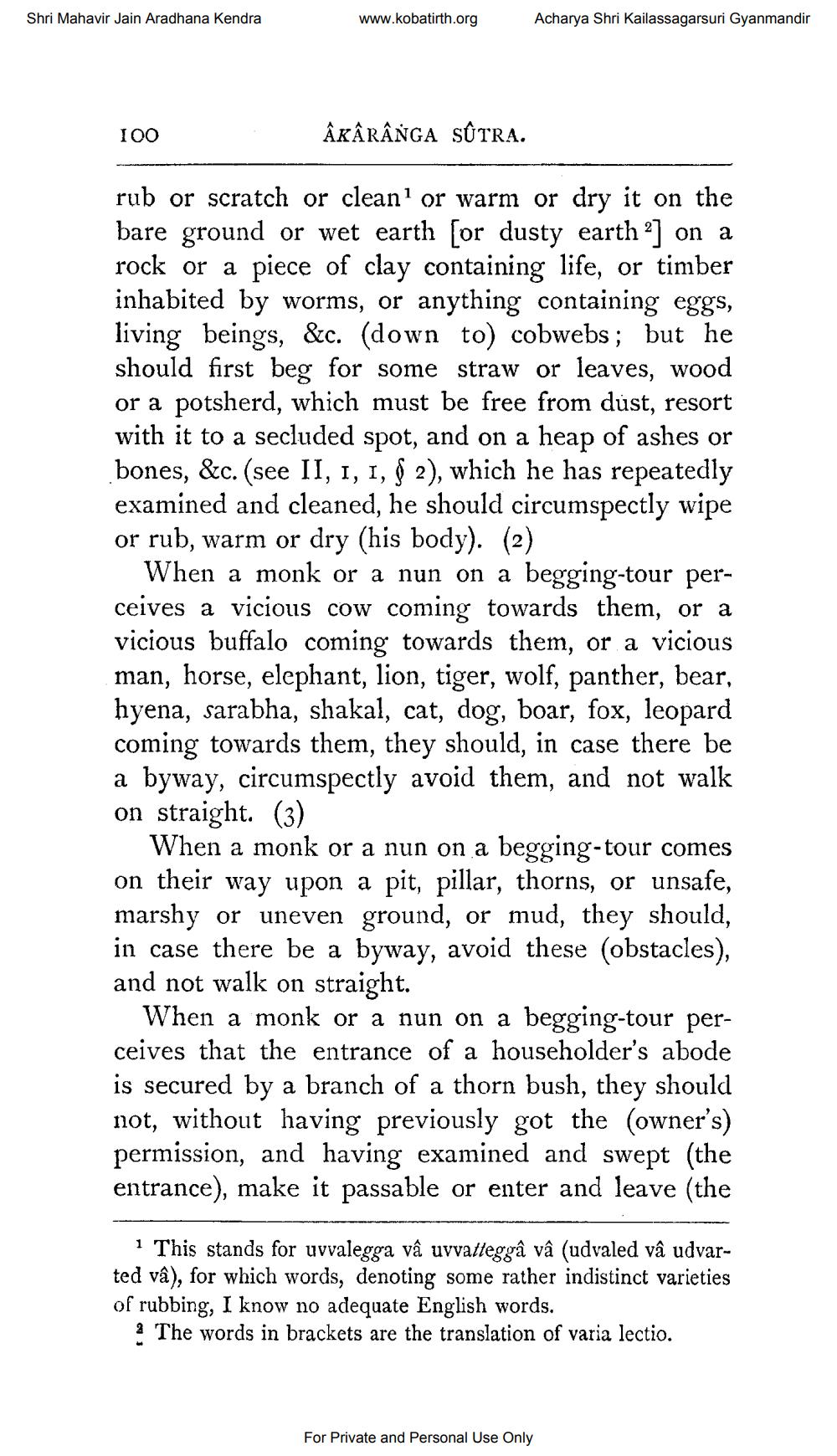________________
Shri Mahavir Jain Aradhana Kendra
www.kobatirth.org
Acharya Shri Kailassagarsuri Gyanmandir
100
ÂKÂRÂNGA SÚTRA.
rub or scratch or clean or warm or dry it on the bare ground or wet earth for dusty earth?] on a rock or a piece of clay containing life, or timber inhabited by worms, or anything containing eggs, living beings, &c. (down to) cobwebs; but he should first beg for some straw or leaves, wood or a potsherd, which must be free from dust, resort with it to a secluded spot, and on a heap of ashes or bones, &c. (see II, 1, 1, § 2), which he has repeatedly examined and cleaned, he should circumspectly wipe or rub, warm or dry (his body). (2)
When a monk or a nun on a begging-tour perceives a vicious cow coming towards them, or a vicious buffalo coming towards them, or a vicious man, horse, elephant, lion, tiger, wolf, panther, bear, hyena, sarabha, shakal, cat, dog, boar, fox, leopard coming towards them, they should, in case there be a byway, circumspectly avoid them, and not walk on straight. (3)
When a monk or a nun on a begging-tour comes on their way upon a pit, pillar, thorns, or unsafe, marshy or uneven ground, or mud, they should, in case there be a byway, avoid these (obstacles), and not walk on straight.
When a monk or a nun on a begging-tour perceives that the entrance of a householder's abode is secured by a branch of a thorn bush, they should not, without having previously got the owner's) permission, and having examined and swept (the entrance), make it passable or enter and leave (the
This stands for uvvalegga vâ uvvatteggâ vâ (udvaled vâ udvarted vâ), for which words, denoting some rather indistinct varieties of rubbing, I know no adequate English words.
The words in brackets are the translation of varia lectio.
For Private and Personal Use Only




